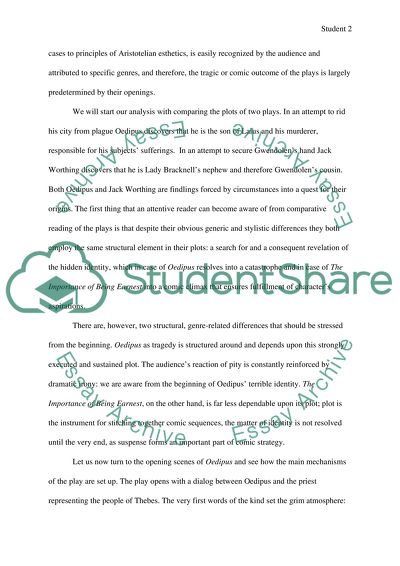Cite this document
(“Oedipus the King and The Importance of Being Earnest Book Report/Review”, n.d.)
Retrieved from https://studentshare.org/miscellaneous/1506770-oedipus-the-king-and-the-importance-of-being-earnest
Retrieved from https://studentshare.org/miscellaneous/1506770-oedipus-the-king-and-the-importance-of-being-earnest
(Oedipus the King and The Importance of Being Earnest Book Report/Review)
https://studentshare.org/miscellaneous/1506770-oedipus-the-king-and-the-importance-of-being-earnest.
https://studentshare.org/miscellaneous/1506770-oedipus-the-king-and-the-importance-of-being-earnest.
“Oedipus the King and The Importance of Being Earnest Book Report/Review”, n.d. https://studentshare.org/miscellaneous/1506770-oedipus-the-king-and-the-importance-of-being-earnest.


